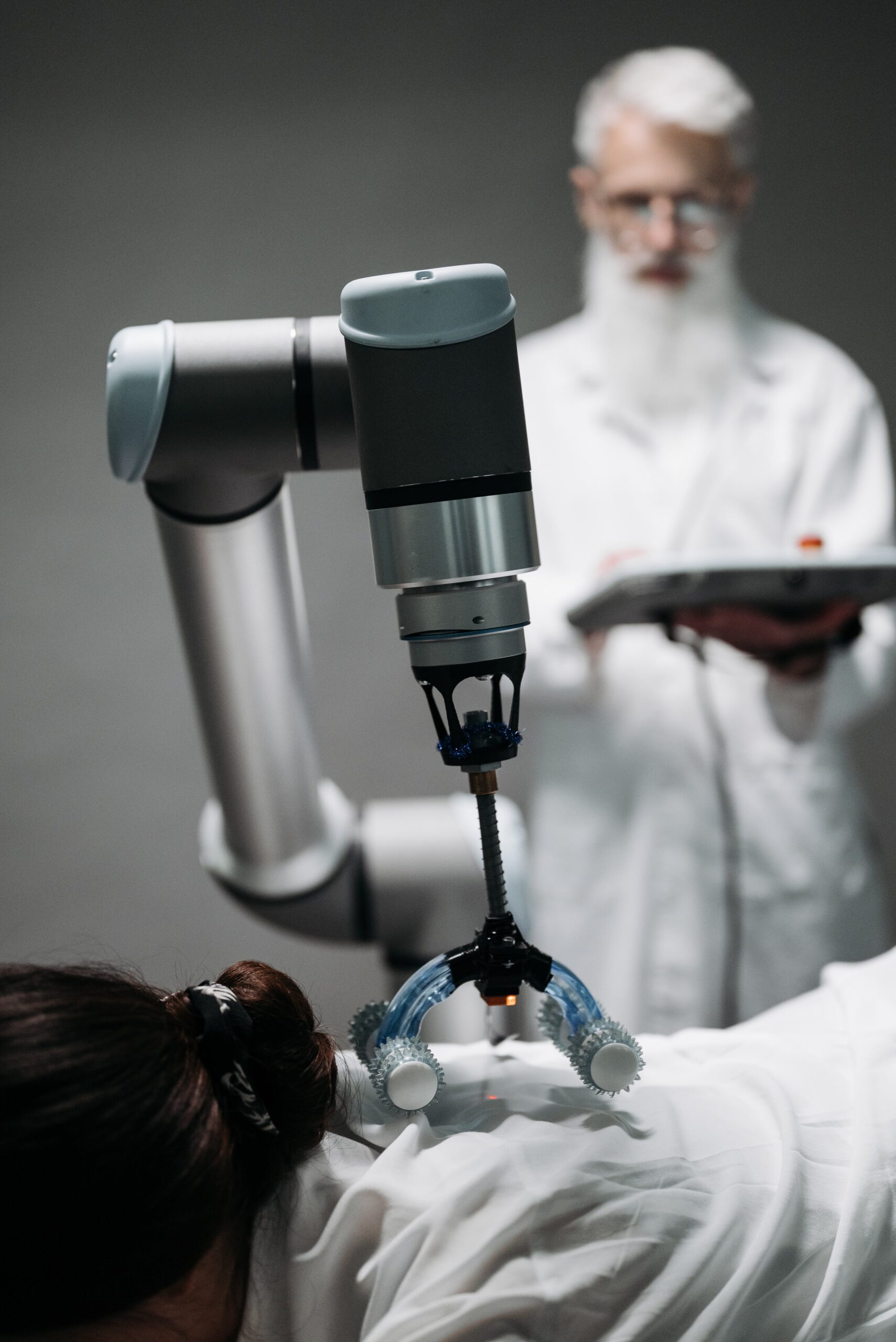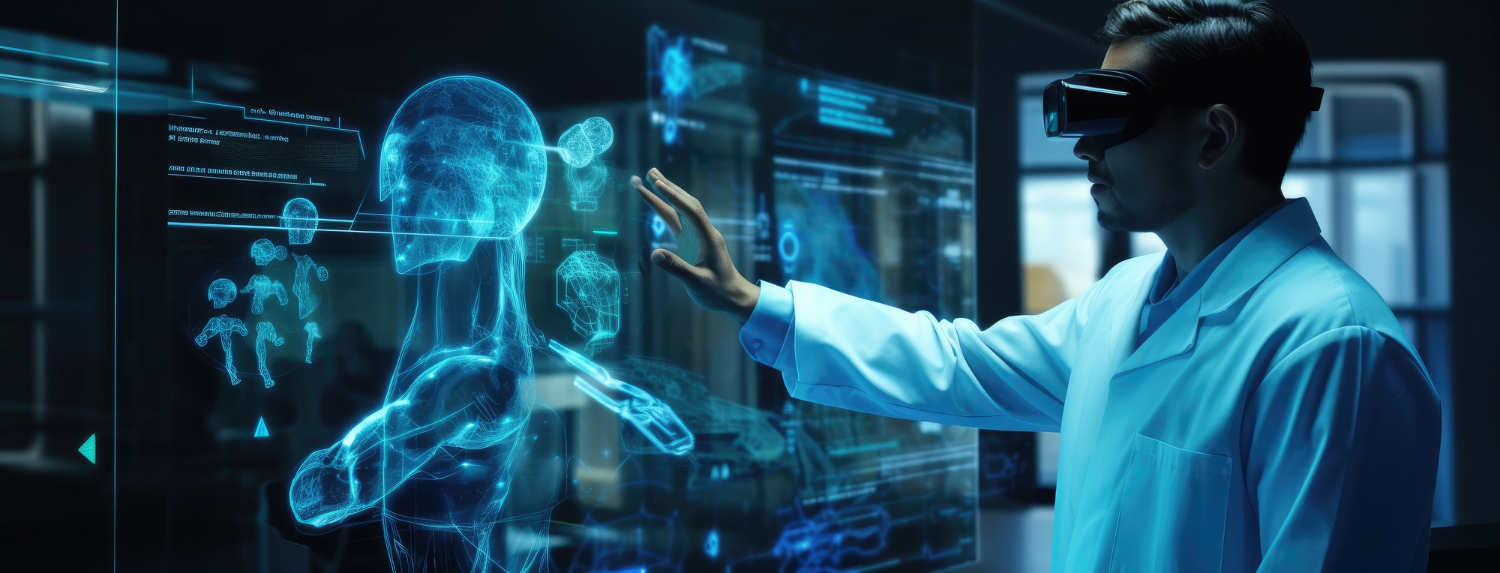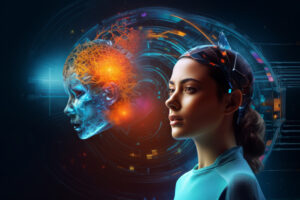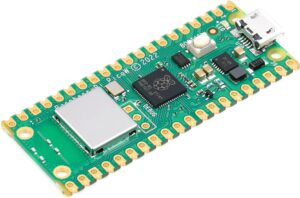Introduction
Artificial Intelligence (AI) is revolutionizing healthcare by transcending traditional boundaries. It empowers clinicians with advanced diagnostics, personalized treatment plans, and predictive analytics. AI-driven technologies, like machine learning, enhance medical imaging interpretation, accelerating accurate diagnoses. Additionally, AI facilitates seamless data integration across healthcare systems, improving coordination and patient outcomes. Its transformative impact extends to telehealth, automating routine tasks, and enabling virtual consultations. As AI continues to evolve, its potential in healthcare transcends current capabilities, promising more efficient, precise, and accessible medical care on a global scale.

1.what is Artificial Intelligence
Artificial Intelligence is a cutting-edge computer programming framework that possesses the capability to acquire knowledge and adapt based on historical data. This advanced system seamlessly integrates principles from data science, machine learning, and deep learning, enabling it to continually evolve and enhance its understanding.

2.How Artificial Intelligence learns
Artificial Intelligence harnesses the power of machine learning algorithms to assimilate valuable insights from a wealth of historical medical data. Through rigorous training conducted over extended periods, spanning hours or even days, and by scrutinizing a multitude of past cases, AI not only refines its understanding but also seamlessly adapts to formulate accurate predictions for impending healthcare challenges.
3.Artificial Intelligence uses in Healthcare
AI is utilized in various fields, and in healthcare, its applications are diverse. Some notable uses of AI in healthcare include:
1.Diagnosis and Medical Imaging
AI algorithms are employed to analyze medical images such as X-rays, MRI scans, CT scans, and ultrasound scans. Some conditions may go unnoticed by the human eye, but AI can effectively detect them. Additionally, AI has the capability to identify certain diseases at an early stage. for more info..
2.Treatment
AI algorithms can predict the most suitable drug and recommend a tailored treatment based on the patient’s medical history. This approach leverages patient-specific information to enhance the accuracy and effectiveness of medical interventions. As a result, healthcare professionals can make more informed decisions and optimize patient outcomes.
For example:
Imagine a scenario where a patient with a history of allergies and specific genetic markers is diagnosed with a particular condition. AI algorithms can analyze this patient’s medical history, taking into account their allergies, genetic predispositions, and other relevant factors. The algorithm may then suggest a treatment plan that minimizes the risk of adverse reactions and maximizes the likelihood of positive outcomes for that individual.
This personalized approach to treatment not only improves patient safety but also contributes to the overall efficiency of healthcare delivery. By harnessing the power of AI to analyze vast amounts of patient data, healthcare providers can offer more precise and targeted interventions tailored to the unique needs of each patient.
3.Prevention
Artificial Intelligence can assist patients in managing their care based on their medical treatments.
For example:
If a patient undergoes a urinary surgical procedure and undergoes the implantation of a stent, Artificial Intelligence demonstrates its capacity to anticipate and suggest pertinent dietary modifications, prescribe tailored exercise regimens, and propose additional relevant measures, all aimed at bolstering and facilitating the patient’s recovery process.
4.Robot-Assisted Surgery
In certain situations, human surgeons may encounter limitations or face various challenges during surgical procedures. Integrated AI robots can provide invaluable assistance, overcoming these obstacles and enhancing overall surgical precision.

5.Virtual Personalized Health Assistants
Beyond being a mere pocket doctor, virtual personalized health assistants leverage wearable devices to monitor essential metrics such as heart rate and calories burned. These intelligent assistants go beyond mere data collection, offering tailored diet plans, exercise recommendations, optimal rest periods, and even medication reminders. By seamlessly integrating into individuals’ daily lives, these virtual health assistants contribute significantly to proactive healthcare management.
4.Benefits and Challenges AI in Healthcare:
Benefits
- AI enhances efficiency, boosting productivity in healthcare processes.
- Precision in diagnosis is improved through advanced data analysis and pattern recognition.
- Personalized treatment plans are facilitated, elevating the quality of patient care and outcomes.
- Automation of routine tasks frees up healthcare professionals to focus on critical aspects of patient well-being.
- Predictive analytics contributes to preventive care, lowering the risk of disease progression.
Challenges
- Ethical considerations surround the responsible use of patient data, raising privacy concerns.
- Implementing AI entails significant costs, posing financial challenges for healthcare institutions.
- Ensuring the reliability and interpretability of AI algorithms is vital for maintaining trust in diagnoses.
- Potential biases in AI models may lead to healthcare disparities among diverse patient groups.
- Integrating AI with existing systems faces resistance and demands extensive training for healthcare professionals.
5.The Future of AI in Healthcare
- AI Integrated AR/VR
- Virtual 3D Healthcare Experience: The integration of AI with AR/VR technology could revolutionize healthcare delivery. Patients could experience virtual consultations, surgeries, or medical training from the comfort of their homes, enhancing accessibility and reducing the need for physical presence.

- Drug Discovery:
- AI-Powered Drug Discovery: AI has the potential to significantly expedite the drug discovery process. Machine learning algorithms can analyze vast datasets to identify potential drug candidates, predict their effectiveness, and optimize formulations. This could lead to more rapid and cost-effective development of new treatments.
- AI Integrated Wearable Devices:
- Predictive Health Monitoring: AI integrated into wearable devices could enhance their capabilities to monitor health parameters. These devices could go beyond basic tracking to predict potential health issues based on patterns and trends, allowing for proactive intervention and personalized health management.
- 3D Rendering:
- Enhanced Medical Imaging: The application of AI in 3D rendering of medical images could provide clearer and more detailed visualizations. This can be particularly beneficial in diagnostics, treatment planning, and medical education. The color and 3D effects could aid in better understanding for both healthcare professionals and patients.
The convergence of AI with these technologies has the potential to reshape various facets of healthcare. However, several challenges must be addressed, including regulatory concerns, ethical considerations, data security, and the need for extensive validation of AI algorithms in real-world healthcare settings.
If you have an interest in bringing about change in healthcare, join us here.
conclusion
In summary, the indisputable transformative impact of Artificial Intelligence on healthcare is inescapable, fundamentally revolutionizing diagnostics, treatment modalities, and the broader landscape of patient care. Notwithstanding the substantial benefits it affords, it becomes imperative to systematically confront the inherent challenges, ensuring the responsible and judicious harnessing of AI’s potential. Attaining a harmonious equilibrium between relentless technological advancement, ethical considerations, and stringent regulatory compliance is quintessential to unlocking the entirety of AI’s capabilities in healthcare. This holistic approach will invariably pave the way for a more streamlined, precise, and equitable healthcare system, transcending geographical boundaries on a global scale.






2 thoughts on “How Artificial Intelligence is Transforming Healthcare”